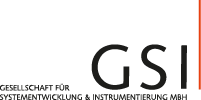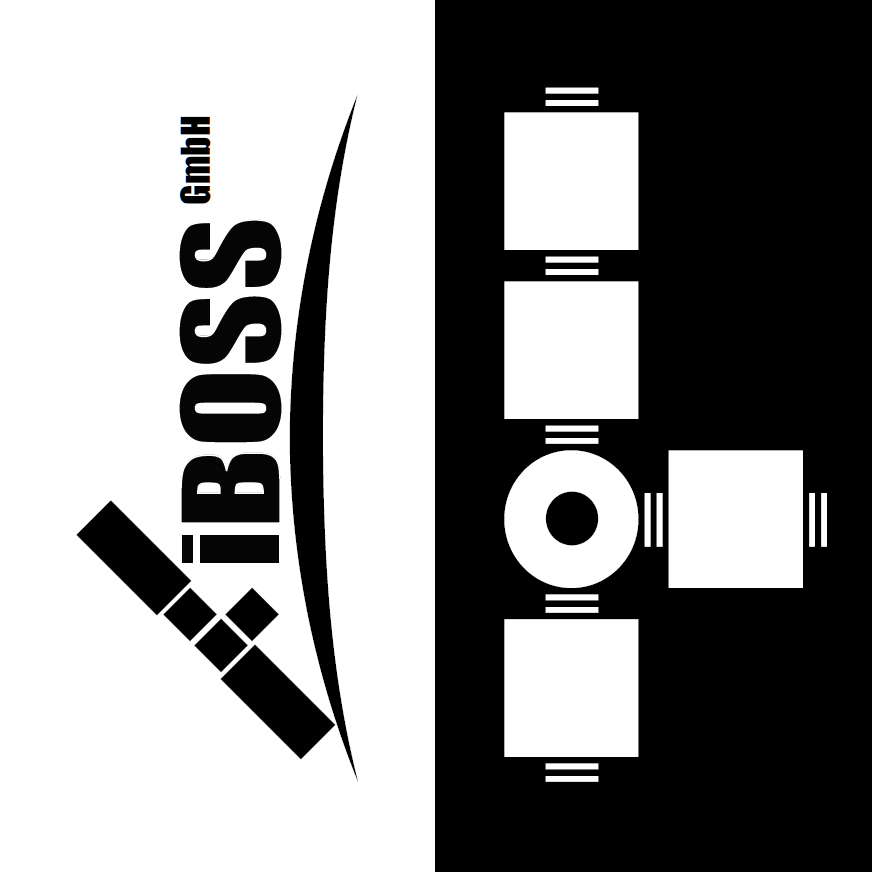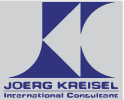The Chair of Fluid Mechanics and the Institute of Aerodynamics belongs to the department of mechanical engineering of the RWTH Aachen University. The experimental and numerical units plus the laboratory for bio-medical flows constitute the main departments of the institute.
Several subsonic, transonic and supersonic wind tunnels and water tunnels are the essential experimental facilities. In addition, there are special test rigs to study flow fields, e.g., within piston engines, through safety valves, and artificial heart valve prosthesis. The measurement methods consist of, e.g., particle-image and particle-tracking velocimetry, laser-doppler and hot-wire anemometry, multi-sensor hot films, differential and Mach-Zehnder interferometry, and schlieren-methods. Continuous as well as pulse lasers and high-speed cameras are part of the experimental setups. Measuring equipment such as hot wires and hot films is in-house manufactured.
Workstations and PCs are connected to form a parallel cluster on which computational fluid dynamics simulations are run. Furthermore, the Institute has access to the massively parallel machine of the university’s scientific computing center, of the Jülich Supercomputing Center (JSC), and the High Performance Computing Center Stuttgart (HLRS) to perform numerical analyses of internal and external, steady and unsteady, laminar and turbulent flows for complex geometries.
The major one- and two-term courses are given in fluid mechanics, aerodynamics, gasdynamics, computational fluid mechanics, boundary-layer theory, measurement methods, hypersonic flows and biological and medical flows, and aerothermal design of spacecraft. Moreover, special topics like computational fluid dynamics and laser-based measurement methods, such as particle-image velocimetry, are covered in additional workshops. Using experimental and numerical methods, research is conducted in fundamental and applied fluid mechanics, the general areas of which are turbulence, aerodynamics, vortex dynamics, bio-medical flows, multiphase flows, measurement methods, computational fluid dynamics, and computational aeroacoustics.
The aerospace research is based on fundamental projects funded by the German Research Association (DFG).
More information on AIA can be found here
The Institute for Advanced Mining Technologies (AMT) of RWTH Aachen University has its background in the field of terrestrial and deep sea mining. In research and education, the AMT stands for a safe, efficient and responsible supply of raw materials by its contribution to the automation and digitization of mining machines and processes. AMT’s current research focusses on the development and application of ruggedized sensor technologies being able to cope with the harsh and challenging mining environment in combination with advanced data analytics using sophisticated methods and algorithms for various mining applications aiming at the autonomous mine. These currently comprises advancements in the field of material characterization, localization and navigation for autonomous mobile machinery, condition monitoring and predictive maintenance as well as process automation. The AMT has long-term experience in developing and adapting sensor concepts and solutions to various challenging on-earth and deep sea environments both from a hardware as well as software development perspective.
Regarding space, the use of space resources will play an important role when it comes to enabling human presence in space, for example on the Moon. Preliminary research activities comprise investigations on how raw materials can be extracted, processed and refined into products in space. AMT intends to contribute pushing forward research for an efficient extraction of space resources by its expertise in the field of terrestrial and deep-sea mining. Equally, space related knowledge and developments can also be used for advancements in on-earth mining activities.
More information on AMT can be found here
Space technology teaching and research at the „Space Exploration Lab“ (SEL) of the FH Aachen University of applied Sciences focuses mainly on space exploration. The necessary space technology procedures, components and systems are developed, built and qualified in a target-oriented approach and largely in-house.
The two professors teaching and researching at SEL, Prof. Czupalla and Prof. Dachwald, each bring years of experience from industry and the German Aerospace Center (DLR) to their respective fields.
Prof. Czupalla works in the field of systems engineering, analysis and design of spacecraft, space payloads (especially optical) as well as innovative spacecraft components, with a specialization in thermal opto-elastics. In addition, Prof. Czupalla researches the design and optimization of life support systems for Mars and lunar missions in the field of manned space flight.
Prof. Dachwald investigates the analysis, design and optimization of space missions, as well as intelligent methods for spacecrafttrajectory optimization. His research activities also include the development of future, innovative space technologies such as solar sails and melting probes. Prof. Dachwald is also engaged in astrobiological research of the solar system, in particular of icy moons and small bodies.
Together, the two professors are investigating the formation flight of satellites as the basis for future cooperative space telescopes. This topic couples the SEL expertise in the fields of bionic, additive structures, adaptive optics and thermal control methods as well as neural attitude and orbit control systems.
In joint projects, SEL supports its partners and customers with its expertise in the design of space missions and spacecraft components, as well as in their analysis and qualification through experiments.
Appropriate test facilities (thermal vacuum chamber and shaker) are available. The SEL also operates its own ground station for the operation of CubeSat missions in the amateur radio sector.
More information on SEL can be found here
More information on HFE can be found here
The Chair and Institute of Aerospace Systems (ILR) at RWTH Aachen University acts as the connecting link between the different disciplines of aeronautical engineering. It deals with the design and the operation of aircraft and spacecraft vehicles and as well the further advancement of system components. The objective is to increase the eco-efficiency of future transport vehicles. The ILR is focusing its research on the conceptual design of aircraft in combination with the integration of new technologies and their evaluation. Additionally, the sustainability of new configurations is assessed on a temporal level by applying life-cycle-analyses and on a spatial level by integrating the vehicle into the air transport system and simulating the aircraft operation. In the field of aerodynamic systems, ILR research focusses on vortex dynamics of aircraft and spacecraft along with the associated acoustic phenomena.
In the field of space flight, the ILR deals with the configurational design of hypersonic flight vehicles. Furthermore, aerodynamic and aeroacoustic phenomena during the lift-off (and landing) phase of launch systems are investigated, i.e. reusable systems are also taken into consideration.
More information on ILR can be found here
The Department of Rocket Propulsion at the Institute of Space Propulsion of the German Aerospace Center (DLR) has a long heritage in researching into cryogenic rocket propulsion and teaching in the field of space propulsion at the RWTH Institute of Jet Propulsion and Turbomachinery (IST). In the department of Prof. Dr. rer. nat. Michael Oschwald sound experience and know-how have been built up over the years in performing experiments at conditions representative to cryogenic high pressure combustion as well as in modelling and simulation of elementary processes in rocket motor components as well as in the prediction of rocket engine behavior.
The main focus of research at the level of propulsion components is on combustion chamber technology, propellant injection, combustion, structural analysis, expansion nozzles and measurement technology. Basic experiments serve to generate a qualified database for the validation of advanced design tools. New technologies are demonstrated up to a TRLof 4-6 on research rocket combustion chambers.
The interaction of the motor components determines the behavior of the higher-level system, the engine. The evaluation of the performance of a rocket motor with the methods of system analysis is therefore indispensable. A key project is the development of an operational engine demonstrator in the Department of Rocket Propulsion at the DLR Institute of Space Propulsion.
In addition to experimental investigations, numerical simulation methods for predicting component and engine behavior for the operating conditions of high-pressure combustion chambers are being further developed and validated.
The focus of the activities is on cryogenic engines for stage propulsion and on thrusters for position and orbit control. The experimental work takes place on the test benches of the DLR Institute for Space Propulsion in Lampoldshausen.
The Institut für Textiltechnik of RWTH Aachen University (ITA) is affiliated with the Chair of Textile Technology in Mechanical Engineering and is headed by Professor Dr. Thomas Gries. The ITA is part of the department of Mechanical Engineering at RWTH and represents the textile-related contents of the course of studies „Plastics and Textile Technology“ in various bachelor and master courses of mechanical engineering at RWTH Aachen University.
The institute focuses on mechanical engineering and textile process engineering, polymer technology and high-performance fibre materials, textile preforming and fibre composites, medical technology, smart textiles and joining technology as well as simulation and measurement technology. The ITA develops textile semi-finished products and other products for the fields of mobility, building & living, health, energy & environment, information & communication, production engineering and materials engineering. Furthermore, the ITA acts as a qualification service provider in academic teaching and industrial training as well as advanced training for industry professionals. In addition, it supplies numerous other industrial sectors with targeted innovations for new processes and textile materials, including the sporting goods industry and the ICT sector.
More information on ITA can be found here
The institute for Man-Machine Interaction (MMI) of the RWTH Aachen University specializes in modelling and simulating systems and environments, in analyzing complex systems, in connecting humans, devices and machines, and in realizing intelligent systems. MMI’s innovative Digital Twins revolutionize the development process and the operation of (not only) robotic systems and are the basis for the convergence of virtual and real worlds. The application areas span various industries and disciplines ranging from robot manipulators, mobile robots, and road vehicles up to agricultural, forestry, and construction machines.
In space applications, MMI focuses on Systems Engineering, multi-disciplinary simulation, clear and vivid visualization and interactive analysis of the interaction of spacecrafts, their subsystems and their environment in an overall systems context. The resulting Digital Twins are the basis to e.g. investigate localization methods and exploration strategies for mobile robots on planetary surfaces. Digital Twin-based Decision Support Systems help engineers to develop new optical sensor components and to apply them to different applications. New modular satellite systems are analyzed under different perspectives and application scenarios ranging from the manufacturing process on earth over normal operation in space up to satellite maintenance and servicing.
More information on MMI can be found here
More information on PIB can be found here
The Institute for Structural Mechanics and Lightweight Design (SLA) at RWTH Aachen University has been researching and teaching in the field of lightweight design for more than sixty years. During this time, the institute developed its comprehensive expertise in the fields of design, dimensioning and qualification of aerospace structures. With Prof. Dr.-Ing. Kai-Uwe Schröder as head of the institute, the SLA brings its know-how to all areas of expertise in which lightweight construction plays an essential role.
The research activities of the SLA can be divided into four main fields: Methods & Optimization, Dynamics & Aeroelasticity, Fatigue & SHM and Space. The scientific approach at the SLA is based on the so-called „triad of lightweight design“: the synchronization of test, numerics and analytics allows the development of holistic solutions to meet the current challenges in lightweight construction. With more than fifty employees, its own manufacturing facilities and a well-equipped test laboratory, the SLA is in a position to fully play the aforementioned „triad of lightweight construction“. In joint projects, the institute supports its partners and customers with its expertise in the design of components, structural analysis and qualification through
More information on SLA can be found here
The Space Team Aachen is a team of diverse students from many fields designing, manufacturing and testing rockets from Aachen, Germany. The purpose of their rockets is to gain knowledge and experience in the general engineering design process as well as in the technological challenges of space flight. It is important, to exchange the gained knowledge throughout all team members. They design, manufacture and build the rockets with integrity and go through rigorous testing to ensure safety.
Their vision is to design rockets to participate in international rocketry challenges. Additionally to gain as much knowledge as possible through experimental projects and provide it to all our team members. Lastly to inspire the next generation of students in the aerospace field.
More information on STA can be found here
INDUSTRY PARTNERS
More information on GSI can be found here
iBOSS GmbH – Standards ENABLING YOUR Business – is a privately held and funded NewSpace startup incorporated in early 2017 in Germany (LLC-type entity) providing innovative space system technology standards to enhance or enable other space companies’ new business. iBOSS GmbH leverages on the heritage of the German DLR-backed collaborative technology development project iBOSS (intelligent building blocks for on-orbit satellite servicing and assembly; 2010-2018) and acts THE iBOSS commercialization entity and face in the space market. Moreover, iBOSS GmbH holds all related brands and a master patent license of the iBOSS core space system interface technology and will pool and license other iBOSS IPR. The founders and management of iBOSS GmbH combine over 60 years in space technology development and commercialization and have been involved with the iBOSS project since 2010. The company is represented in multiple working groups focused on spacecraft cellularization, modularity and new technology standards (e.g. member of CONFERS: Consortium for Execution of Rendezvous and Servicing Operations). In addition, iBOSS GmbH serves interface and building block developments with numerous agencies, LSIs and startups in different continents and countries.
More information on IBOSS can be found here
JKIC – commonly used abbreviation – stands for JOERG KREISEL International Consultant – Independent Space Business & Finance Advisors. JKIC was formed in 1992 in Germany and is focused on innovative and commercial activities related to the space sector as well as on specialized activities in the private equity and venture capital industry. Today, JKIC is a recognized label in the global space community, advising space-related government authorities, industry, SMEs and selected investors worldwide using its proprietary global network of leading expertise, and acting as intermediary and advisor. JKIC supports space commercialization, space ventures, facilitates business partnerships, equity finance, global links and strategy development. Strategic tradeoffs, Economic analyses, financial and investment models, business venture development for new space endeavors are part of the portfolio, i.e. applied to new concepts for commercial space ventures or space infrastructure. Global space sector intelligence is another portfolio asset. JKIC is a renown independent space commercialization and early-stage equity investment expert with longstanding global background in the domain. Other recognized expertise spans over of space systems engineering, on-orbit servicing (OOS) and active debris removal (ADR), modularity and plug-and-play (PnP) concepts for future space systems and operations.
More information on JK can be found here














